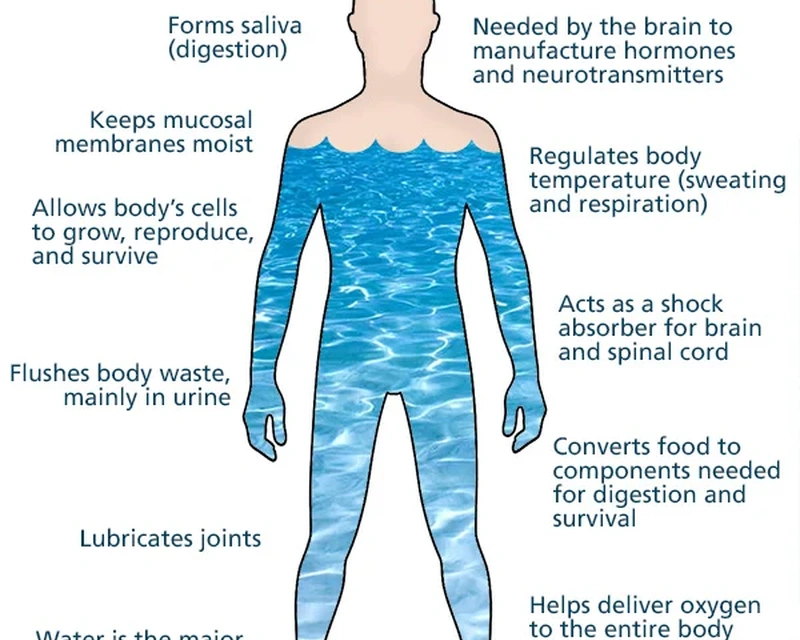
REASONS WHY WATER IS IMPORTANT TO HUMAN BODY
Water along with Oxygen is the most important substance to our bodies. Up to 60% of the human adult body is water. According to H.H. Mitchell, Journal of Biological Chemistry 158 – “the brain and heart are composed of 73% water, and the lungs are about 83% water. The skin contains 64% water, muscles and kidneys are 79%, and even the bones are watery: 31%.”
Every single cell craves for water. We can survive without food for several weeks, but our organs will stop working after only 3-4 days without water.
Here are several reasons why drinking water is important:
-
Hydration: Water is crucial for maintaining proper hydration levels in the body. Adequate hydration is essential for various bodily functions, including nutrient transportation, temperature regulation, and digestion.
-
Cellular Function: Water is a key component of cells, tissues, and organs. It helps in the proper functioning of cells, enabling them to carry out essential processes such as nutrient absorption, waste elimination, and energy production.
3. Nutrient Transport: Water is a universal solvent, meaning it dissolves many substances, including nutrients. It facilitates the transport of essential vitamins, minerals, and other nutrients throughout the body.
4. Digestion: Water plays a crucial role in the digestion process. It helps break down food, aids in the absorption of nutrients in the digestive tract, and prevents constipation by keeping the stool soft and easy to pass.
5. Temperature Regulation: Sweating is the body's natural cooling mechanism, and water plays a central role in this process. When the body overheats, sweating helps release heat, and adequate hydration is necessary to maintain a healthy body temperature.
6. Joint Lubrication: Water is a component of synovial fluid, which lubricates joints and provides cushioning. Proper hydration supports joint health and helps reduce the risk of joint pain and stiffness.
7. Cognitive Function: Dehydration can negatively impact cognitive function, including concentration, alertness, and short-term memory. Staying hydrated is important for maintaining optimal brain function.
8. Skin Health: Proper hydration contributes to skin health by keeping it moisturized and promoting a healthy complexion. Dehydration can lead to dry skin and an increased risk of skin problems.
9. Weight Management: Drinking water before meals can help reduce overall calorie intake and contribute to weight management. Sometimes, the body may confuse thirst with hunger, leading to overeating.
10. Detoxification: Water plays a role in the body's natural detoxification processes. It helps eliminate waste products and toxins through urine, sweat, and other bodily fluids.
11. Prevention of Kidney Stones: Adequate water intake can help prevent the formation of kidney stones by diluting substances in the urine that can lead to stone formation.
12. Heart Health: Proper hydration supports cardiovascular health by maintaining blood volume and ensuring the smooth flow of blood, which helps the heart pump more efficiently.
It's important to note that individual water needs can vary based on factors such as age, sex, activity level, climate, and overall health. Staying mindful of thirst cues and consuming an adequate amount of water throughout the day is crucial for supporting the body's optimal function and overall well-being.
To bariatric patients it is recommended to drink 64-80 oz / 2-2.3 l of water a day.